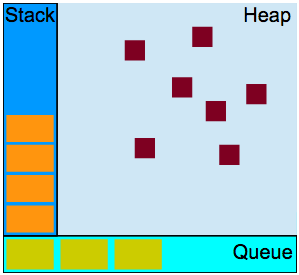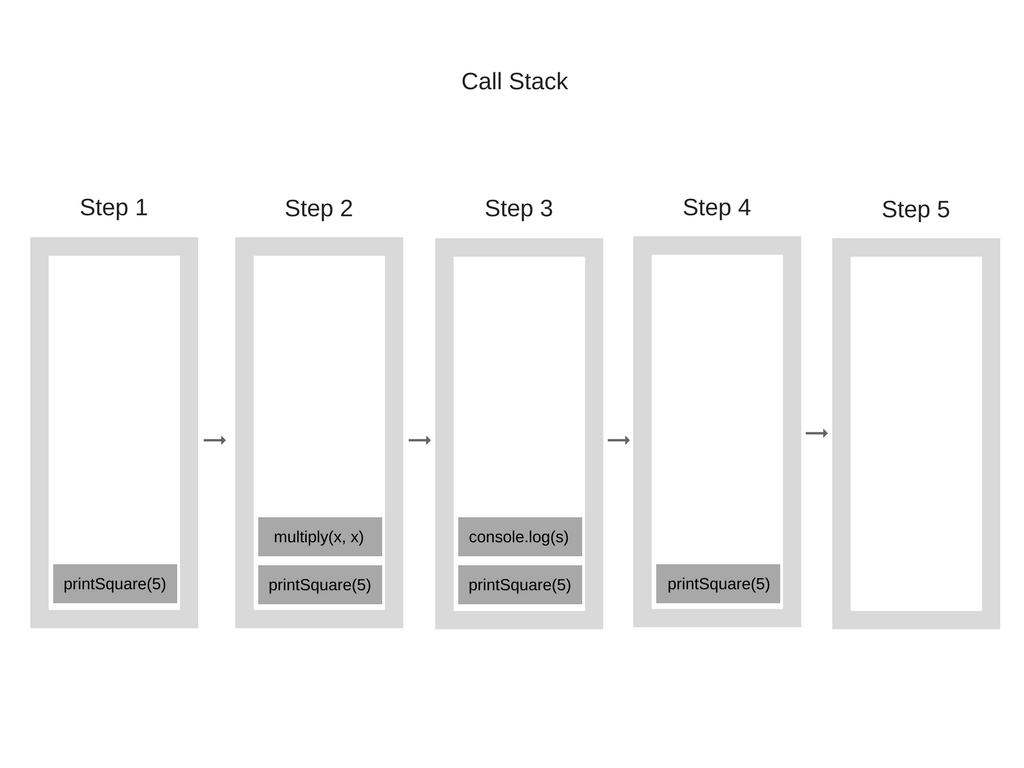JavaScript
Core Concepts
ACMUT WWW 2018
by @theshem
TOC
- What is JS?
- How to
- Variables
- Data types
- Value vs Reference
- == vs ===
- Functions
- Scope
- Hoisting
- Event Loop
- Context
- "use strict";
- Closure
- new keyword
- inheritance and proto chain
Tools
WHAT TOOLS DO YOU NEED?
- A text editor; a program that allows you to edit plain text files. (Notepad++, Sublime Text, VS Code, Brackets, etc.)
- A JavaScript runtime; e.g. a web browser. (Chrome, Firefox, Safari, or Opera.)
What is JS
JavaScript is a scripting language.
- Client-side programming
- Server-side programming
- Updating content dynamically
- Control audio/video
- Handling URL changes
- ...
- Web servers
- Working with databases
- File system
- CLI scripts
- ...
More on MDN
How To
More on MDN
- External JavaScript (in
<head>or<body>)
- Internal JavaScript (in
<head>or<body>)
- Inline JavaScript handlers
<script src="script.js"></script><script>
// JavaScript goes here
</script><button onclick="doSomething()">Click me!</button>Variables
Loosely typed; case-sensitive.
More on MDN
<script>
var a = 5;
b = 4; // Throws a ReferenceError in strict mode
var a;
a; //-> 5
</script><script>
var a = 5;
a = 'changed to string';
a = [1, 2, 3];
a; //-> [1, 2, 3]
</script>Data Types
- Primitives (are immutable)
stringnumberbooleannullundefinedsymbol (ES2015)
- Objects
ArrayObjectFunction
// Primitive values
var str = 'my string';
var num = 42;
var bl = true;
// Primitive types wrapper objects
var str2 = new String('my string');
var num2 = new Number(42);
var bl2 = new Boolean(true);
// Objects constructors
var arr = new Array(1, 2, 3);
var obj = new Object();
// literal form of objects
var arr2 = [1, 2, 3];
var obj2 = { key: 'value' };
function add(a, b) { return a+b };More on MDN
Value vs reference
Primitives are passed by value.
Objects are passed by reference.
// Primitive values
var foo = 'foo';
var bar = foo;
bar += 'bar';
foo; //-> 'foo'
bar; //-> 'foobar'
// Reference Values
var baz = [1, 2, 3]
var qux = baz;
qux.push(4);
baz; //-> [1, 2, 3, 4]
qux; //-> [1, 2, 3, 4]== vs ===
Strict equality (x === y)
var num = 0;
var obj = new String('0');
var str = '0';
num === num; // true
obj === obj; // true
str === str; // true
num === obj; // false
num === str; // false
obj === str; // false
null === undefined; // false
obj === null; // false
obj === undefined; // falseMore on MDN
- Different types? false
- x is undefined or null? true
-
Booleans, strings?
- Same value? true
- Otherwise; false
-
Numbers?
- Same value? true
- NaN? false
- +0, -0? true
- Otherwise; false
-
Objects?
- Same object (reference)? true
- Otherwise; false
== vs ===
Loose equality ==
More on MDN
var num = 0;
var obj = new String('0');
var str = '0';
num == num; // true
obj == obj; // true
str == str; // true
num == obj; // true
num == str; // true
obj == str; // true
null == undefined; // true
// both false,
// except in rare cases
obj == null;
obj == undefined;- Same types? ...
- undefined or null? true
- ...
- ...
- ...
- ...
- ...
- ...
- ...
- ...
You really don't want to know all the conditions!
Functions: Declaration vs Expression
More on MDN
// Function Declaration
function square(number) {
return number * number;
}
// Function Expression
var square = function(number) {
return number * number;
};
var x = square(4); // x gets the value 16Scope
More on MDN
// The following variables
// are defined in
// the global scope
var num1 = 20,
num2 = 3;
// This function is defined
// in the global scope
function multiply() {
return num1 * num2;
}
multiply(); // Returns 60var name = "John";
// A nested function example
function getScore(num1) {
var num2 = 5;
function add() {
return name + ' scored ' + (num1 + num2);
}
return add();
}
// Returns "John scored 6"
getScore(1);Hoisting
More on MDN
// ReferenceError: variable is not defined
console.log(variable);Accessing undeclared variables:
console.log(hoist); //-> undefined
var hoist = 'The variable has been hoisted.';Accessing variables before var statement:
Variable Declaration
Why?
Hoisting
More on MDN
function add(a, b) {
return a + b;
}
add(3, 4); //-> 7add(3, 4); //-> ?
function add(a, b) {
return a + b;
}Function Declaration
Invoking function before function declaration:
Event Loop
An Intro to concurrency in JavaScript
More on MDN

Event Loop
Call stack
More on MDN
function multiply(x, y) {
return x * y;
}
function printSquare(x) {
var s = multiply(x, x);
console.log(s);
}
printSquare(5);
Event Loop
Zero delays
More on MDN
(function() {
console.log('this is the start');
setTimeout(function cb() {
console.log('this is a msg from call back');
});
console.log('this is just a message');
setTimeout(function cb1() {
console.log('this is a msg from call back1');
}, 0);
console.log('this is the end');
})();Context
The this keyword
More on MDN
var test = {
prop: 42,
func: function() {
return this.prop;
},
};
console.log(test.func());
// expected output: 42The value of this is (almost) determined by how a function is called.
Context
- Global context
- Function context
More on MDN
// In web browsers, the window object
// is also the global object:
console.log(this === window); // truefunction f1() {
return this;
}
f1() === window; // true
f1.call('my ctx'); //-> 'my ctx'
f1.apply('my ctx'); //-> 'my ctx'
// .bind() returns a new function
// that when called has its 'this'
// set to the provided value
f1.bind('my ctx');- Simple call ()
- .call(), .apply(), .bind()
- As an object method
- with
newkeyword
"use strict";
- Get rid of some JavaScript silent errors
- Let JavaScript engines perform optimizations
- ...
More on MDN
"use strict";
myFunction();
function myFunction() {
y = 3.14; // Err: y is not declared
}x = 3.14; // This will not cause an error.
myFunction();
function myFunction() {
"use strict";
y = 3.14; // This will cause an error
return this; // this === undefined
}JavaScript Core Concepts
By Hashem Qolami
JavaScript Core Concepts
JavaScript Core Concepts Workshop @ ACMUT WWW* 2018 (* Winter Web Weeks)
- 1,385



